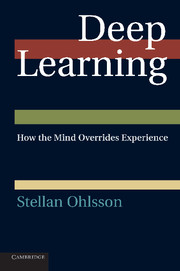5 - Creative Insight Writ Large
Published online by Cambridge University Press: 25 January 2011
Summary
The Eureka act proper, the moment of truth experienced by the creative individual, is paralleled on the collective plane by the emergence … of a new synthesis, brought about by a quick succession of individual discoveries.
Arthur KoestlerThe millennium a.d. 1000–2000 brought mind-boggling changes to the life of the average person. The French might insist that the more the human condition changes, the more it remains the same, but from the point of view of the average person, the change from farming with a handheld plow – a common activity in what was not yet Europe in a.d. 1000 – to trading stocks on the Internet is not superficial. Historical change is driven by the production of many different kinds of novelty. People change what they believe; improve their mastery over material processes; try different forms of economic, political and social organization; and struggle to formulate moral dictums by which they can live more happily. Considered at the millennial scale, the production of novelty is larger than life and mightier than the individual. The river of conceptual, technological and organizational inventions sweeps people along, sometimes to the tune of ineffectual protests about the loss of this or that value supposedly inherent in tradition.
The gap between laboratory studies of insight and historical change looks like the Grand Canyon of cognitive theory. The prospect of bridging it is daunting, and the construction will require more than the modest beginning attempted in this chapter.
- Type
- Chapter
- Information
- Deep LearningHow the Mind Overrides Experience, pp. 130 - 166Publisher: Cambridge University PressPrint publication year: 2011



